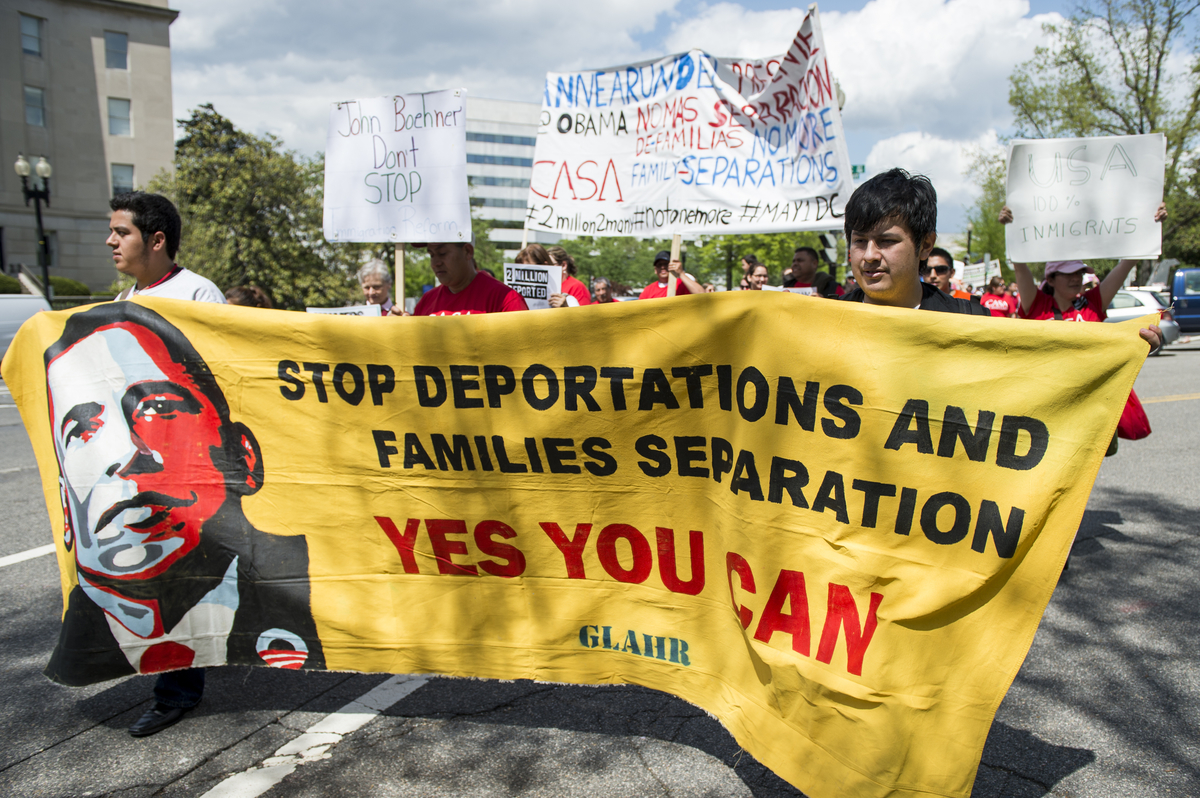
Decision time on immigration
The New York Times Editorial Board
President Obama said on Wednesday that he would act on his own by the end of the year to “improve” the immigration system, presumably by giving many — perhaps millions — of the country’s unauthorized immigrants temporary protection from deportation and permission to work. He has said this before, only to back off in deference to election-year politics.
Now the election is over, and the only thing to say to the president is: Do it. Take executive action. Make it big.
He must not give in to calls to wait. Six fruitless years is time enough for anyone to realize that waiting for Congress to help fix immigration is delusional. Senator Mitch McConnell and Representative John Boehner have warned Mr. Obama that executive action would destroy any chance of future legislation.
But Republicans have had many, many opportunities to move on immigration, and never have. They killed bipartisan reform in 2006 and 2007, and again this year. The party, whose hard-core members tried to stoke national panic at the border this summer, shrieking about migrant children, Ebola and the Islamic State, is not ready to be reasoned with.
The arguments for protecting a broad swath of immigrants through executive action, meanwhile, are firmly on Mr. Obama’s side.
IT HONORS THE LAW Mr. Obama should direct the Department of Homeland Security to focus its limited enforcement resources on removing violent criminals, terrorists and other public-safety threats — and not people who have deep roots in this country and pose no threat. This use of discretion is customary and entirely legal.
IT HELPS THE COUNTRY Having such a large immigrant population living here outside the law also undermines the law. Ever more stringent crackdowns waste resources by chasing down people who pose no threat. Allowing unauthorized immigrants to live and work without fear, and keeping families together, will boost the economy, undercut labor exploitation and ease the strain on law enforcement. This has been the goal of a comprehensive immigration overhaul. A deportation reprieve would not be permanent, but it would have many of the same benefits as legislative reform.
IT CUTS TO THE HEART OF THE DEBATE For years the immigration discussion focused obsessively on border security and avoided the question of what do with 11 million immigrants already living here. If Mr. Obama acts, he will be declaring that this population has a stake in our country’s future. That is starkly opposed to the view espoused by Republican hard-liners like Senators Ted Cruz and Jeff Sessions, Representatives Lamar Smith and Steve King, who take their cues from anti-immigration pressure groups that embody the country’s old strains of nativism. Millions of Americans-in-waiting need an answer. It should be a welcoming one.
There is reason to worry that Mr. Obama’s as-yet-unannounced plan for executive action will be too cautious, small and narrow. He has not said how big a group might qualify for protection. He should start with those who would have qualified for legalization under the bill that passed in the Senate in 2013 but died in the House.
That bill, a serious attempt at a once-in-a-generation overhaul, would have given millions with clean records a shot at legalization if they paid fines and back taxes and went to the back of the citizenship line, among other things. Mr. Obama strongly endorsed the bill. His executive action should be just as broad.
There will surely be intense debate when Mr. Obama draws the lines that decide who might qualify for protection. Some simple questions should be his guide: Do the people he could help have strong bonds to the United States? Does deporting them serve the national interest? If it doesn’t, they should have a chance to stay.
(From The New York Times)

